Are you looking to navigate the often-complex world of legal information? Whether you have questions about a specific case, need clarification on laws, or seek guidance on legal procedures, a well-crafted letter can be the key to unlocking the answers you need. In this article, we'll explore a useful letter template designed to help you inquire about legal information effectively. So, let's dive in and empower you to take the next step in your legal journey!

Clear Subject Line
Legal inquiries often involve specific topics such as contracts, regulations, or compliance. Clarity in communication is vital. A subject line should briefly encapsulate the nature of the inquiry. For example, regarding contract terms, a clear subject could be "Request for Clarification on Contract Clause 5.2." For regulatory compliance, "Inquiry Regarding IRS Tax Regulations for Non-Profit Organizations" effectively conveys the context. Additionally, keeping the subject concise ensures that the recipient can quickly understand the purpose of the correspondence, facilitating a more efficient response process.
Precise Identification of Parties
A precise identification of parties involved in a legal inquiry is crucial for ensuring clarity and accuracy in legal proceedings. This includes full names (first, middle, last) of individuals or complete legal entity names (such as corporations or partnerships). It is essential to include identification numbers (such as Social Security Numbers or Tax Identification Numbers) to avoid confusion among parties with similar names. In addition, details about the roles of each party (plaintiff, defendant, petitioner, respondent) must be clearly stated to delineate their standing in the case. Address information (including city, state, and zip code) provides an important context for jurisdictional matters. Incorporating these specific details enhances the effectiveness of legal communications and reduces the risk of misunderstandings.
Specific Information Request
Legal inquiries often require specific information regarding regulations, case law, or procedural guidance. For instance, an individual may need clarity on the implications of the Fair Housing Act, established in 1968, regarding discrimination in housing practices in the United States. This landmark legislation aims to prevent discrimination based on race, color, religion, sex, familial status, national origin, and physical or mental disabilities. Additionally, inquiries may encompass state-specific regulations, such as California's Proposition 65, which mandates businesses to inform individuals about exposure to chemicals known to cause cancer or reproductive harm. Such requests often seek detailed interpretations of legal statutes to understand rights and obligations within a particular jurisdiction, ensuring compliance with both federal and state laws.
Deadline for Response
A legal information inquiry typically requires a response within a specified timeframe to ensure compliance and facilitate timely action. For instance, in the United States, many jurisdictions impose a 30-day deadline for responses to inquiries related to legal matters. This time constraint allows for adequate preparation and ensures that legal processes can proceed without unnecessary delays. Failure to respond within this timeframe could lead to potential legal repercussions, including default judgments or missed opportunities for resolution. It is crucial to check local rules and regulations to ascertain the precise deadline applicable to the specific legal situation.
Professional Closing and Contact Information
Legal inquiries require clarity and professionalism. A well-structured closing can enhance communication effectiveness. Include a professional closing like "Sincerely" or "Best Regards," followed by your name, title, and organization. Important contact information, including a direct phone number, email address, and possibly a physical office address, ensures recipients can easily reach you. For instance, a legal inquiry to a law firm may necessitate including specific details about the case, such as reference numbers or applicable statutes. This level of detail affirms the seriousness of the inquiry and aids the recipient in providing a timely and informed response.

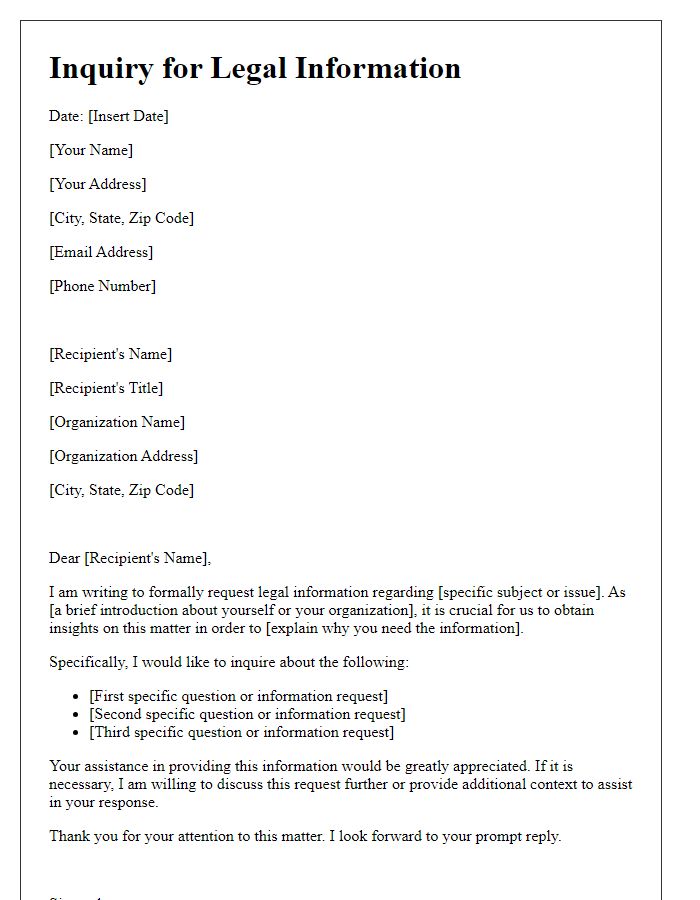
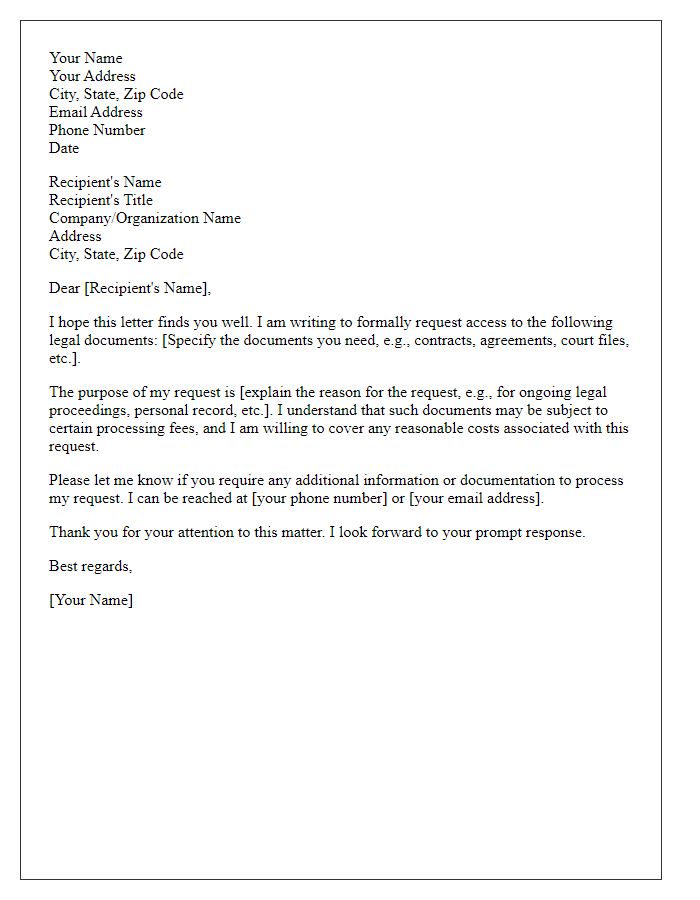
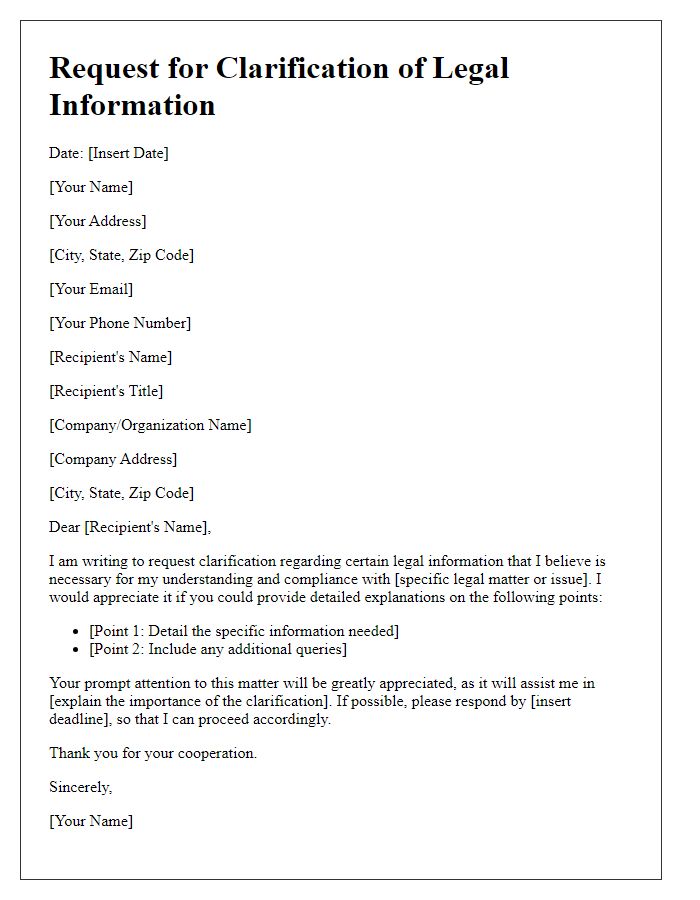
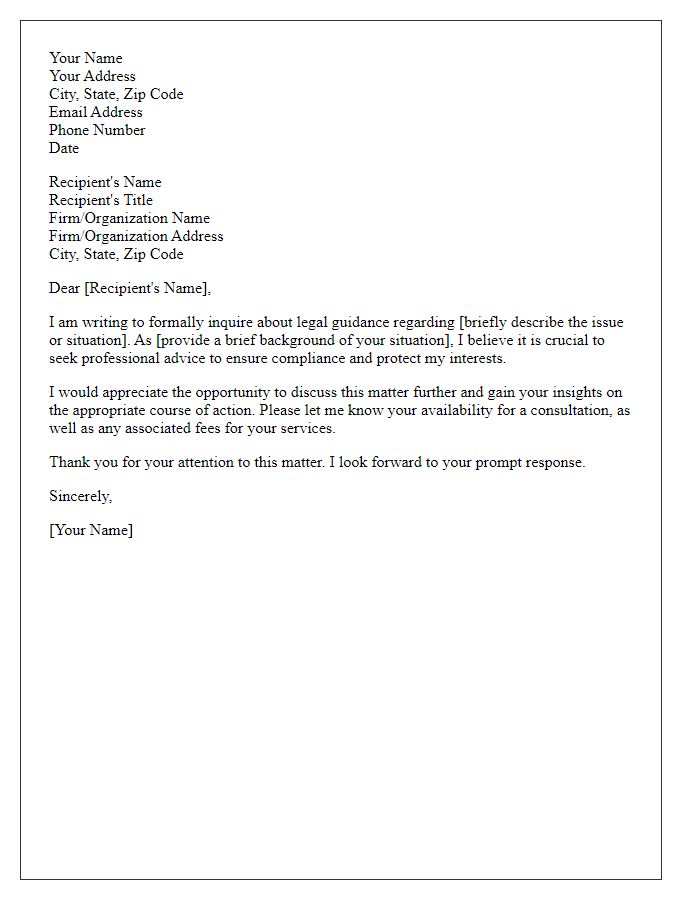
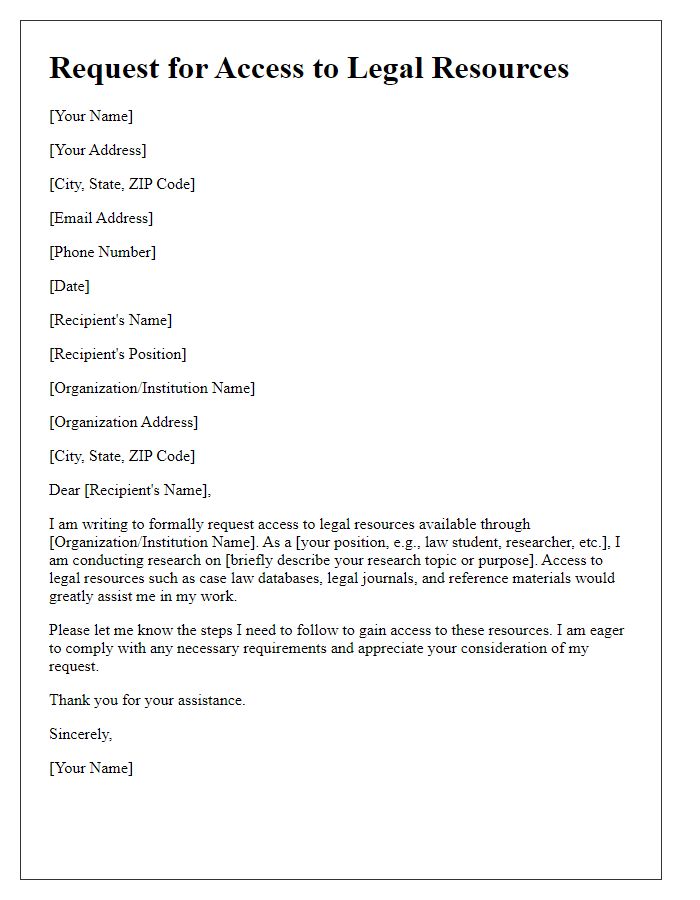
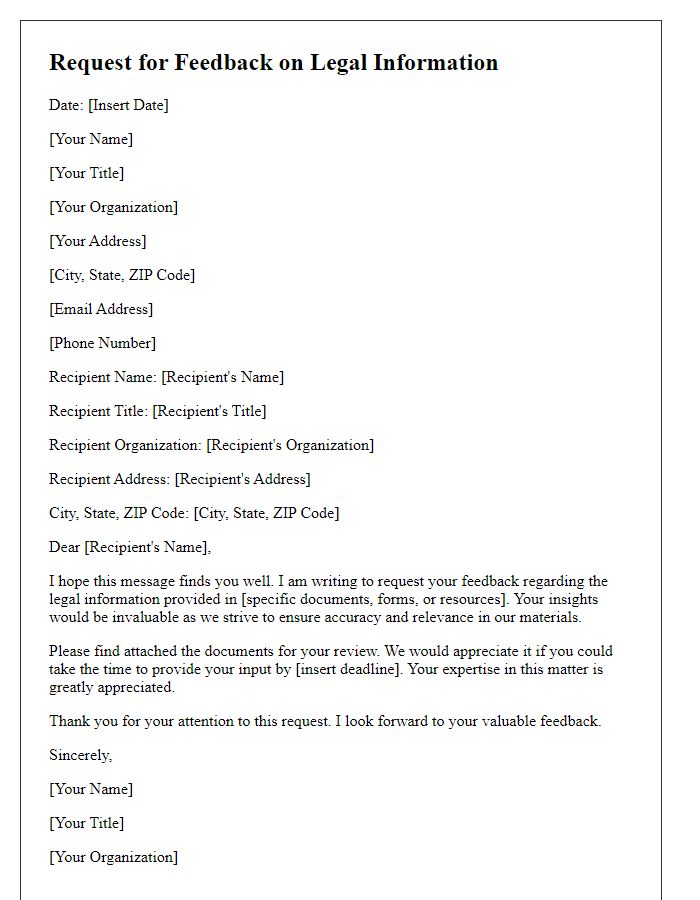
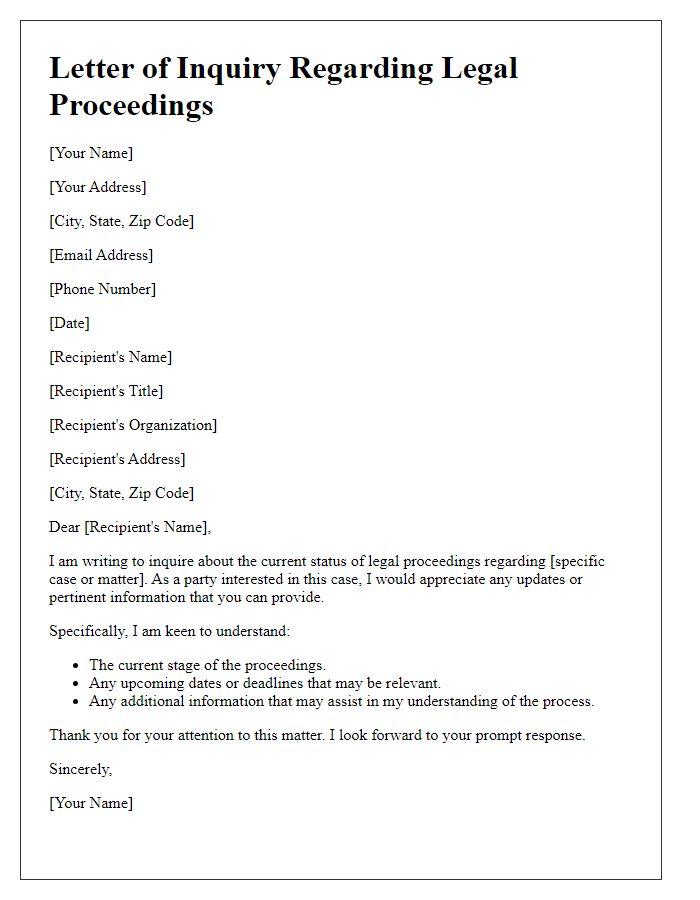
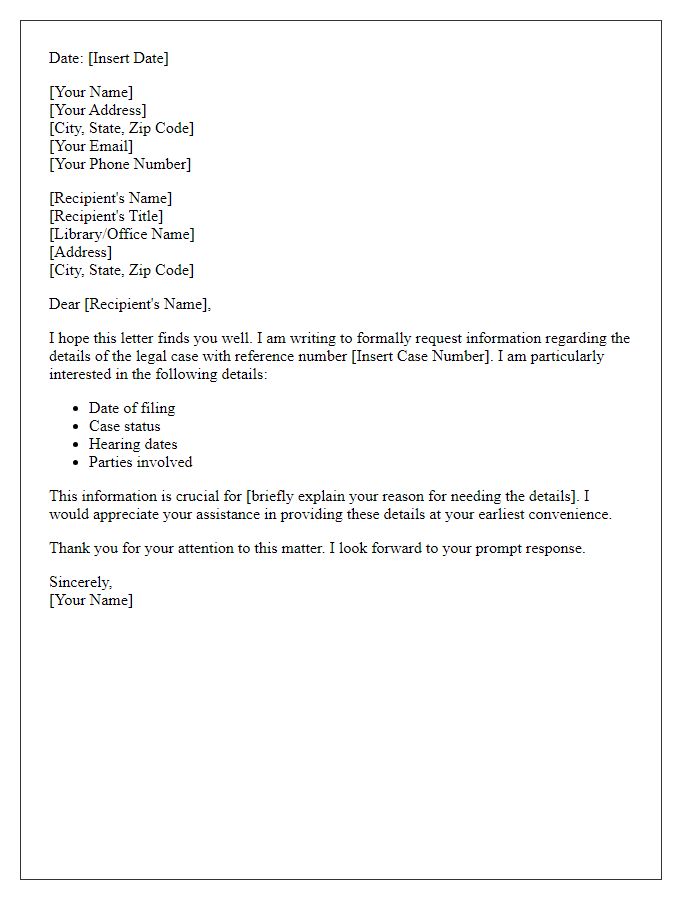
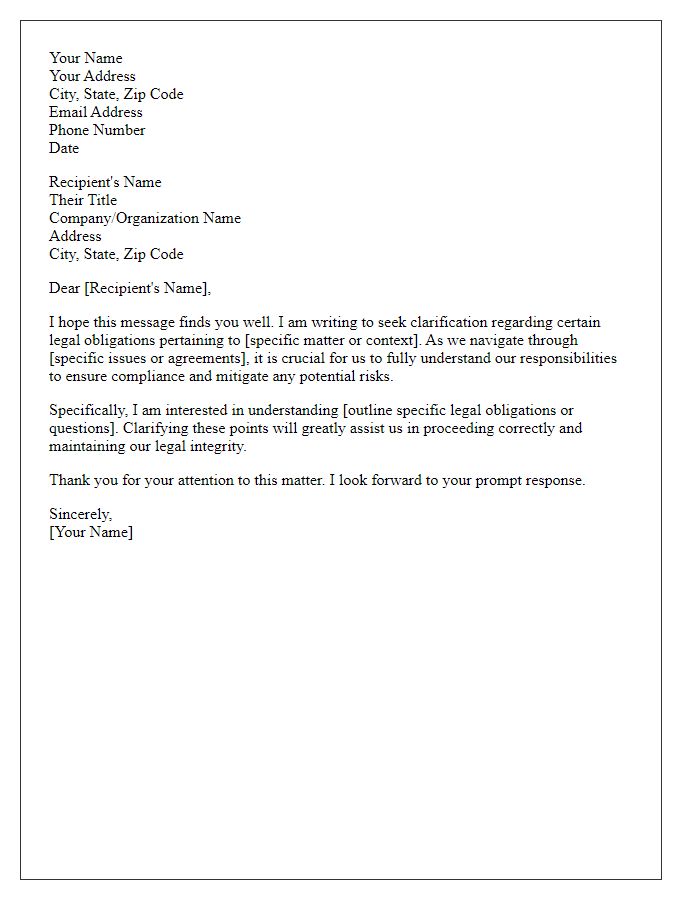
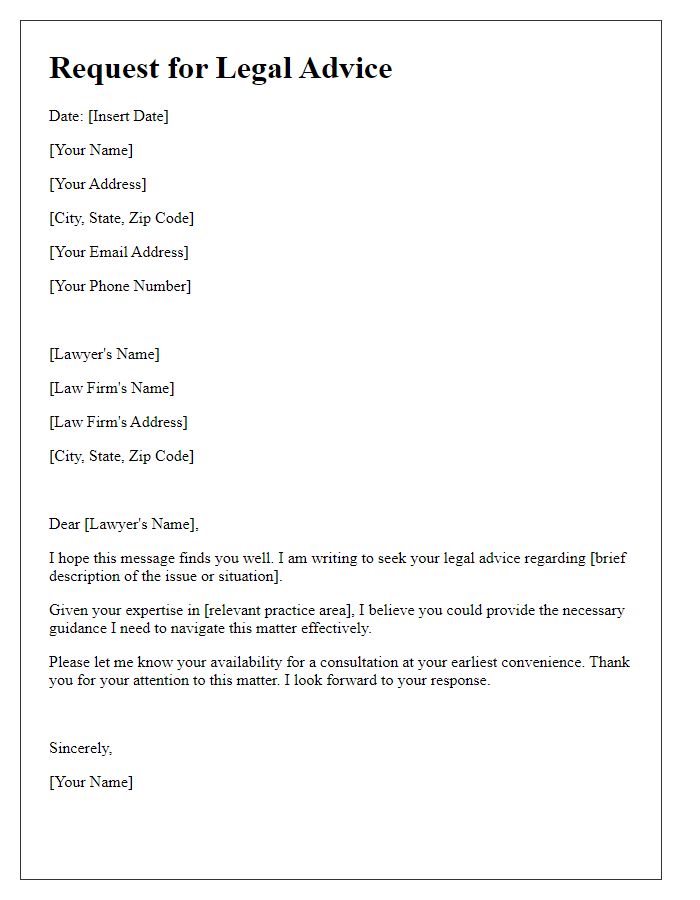


Comments